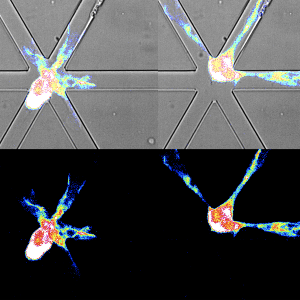2025-04-28 フランス国立科学研究センター(CNRS)
<関連情報>
- https://news.cnrs.fr/articles/the-secret-behind-the-scent-of-roses
- https://www.cell.com/iscience/fulltext/S2589-0042(24)02862-1
- https://medibio.tiisys.com/124457/
人はなぜバラの香りが好きなのか?完璧な花のレシピ Why do we like so much the smell of roses: The recipe for the perfect flower
Inès Adrar ∙ Maxime Hervé ∙ Marylou Mantel ∙ … ∙ Moustafa Bensafi ∙ Sylvie Baudino ∙ Nathalie Mandairon
iScience Published:December 19, 2024
DOI:https://doi.org/10.1016/j.isci.2024.111635
Graphical abstract

Highlights
- The more rose-specific the flower perception, the more pleasant the smell
- Rosy perception is driven by ionones and to a lesser extent by oxylipins
- Mainly ionones, oxylipins and 2-phenylethanol drive rose pleasantness
Summary
The rose is the most cultivated ornamental plant in the world, and one of the reasons is that its fragrance is highly pleasant to humans. This raises the question of which volatile organic compounds (VOCs) emitted by flowers are involved in a rose odor-induced positive emotional response. Here, we invited participants to smell and rate the perceptual characteristics of roses whose VOCs were quantified. We revealed that (1) the more rose-specific the flower perception, the more pleasant the smell and (2) the rosy perception is driven by ionones and to a lesser extent by oxylipins while pleasantness by balanced proportion in the mixture of ionones, oxylipins, and 2-phenylethanol and derivatives. In the mixture, the proportion of some compounds, such as aliphatics and phenolic methyl esters, impact negatively the rose scent. Thus, the pleasure that roses bring to humans could be explained by the non-conscious perception of this unique mixture of compounds.


